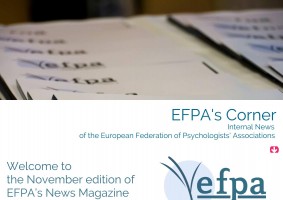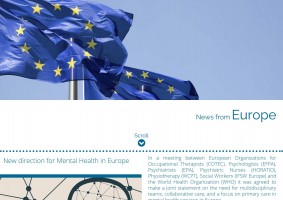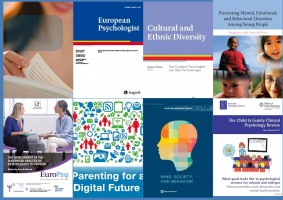_w850_h436_1.png)
EFPA - Brussels - September 29, 2017
In a meeting between European Organizations for Occupational Therapists (COTEC), Psychologists (EFPA), Psychiatrists (EPA), Psychiatric Nurses (HORATIO), Physiotherapy (WCPT), Social Workers (IFSW Europe) and the World Health Organization (WHO) it was agreed to make a joint statement on the need for multidisciplinary teams, collaborative care, and a focus on primary care in mental health services in Europe.
The joint statement will be a historic first for all these organizations, and will hopefully be of significance for advocacy both at European and national level. When it is finalized it will be possible to say that over 1 million professionals in mental health in Europe believe this is the way forward.
Although the final draft of this statement will not be ready for some time, it was agreement in the meeting that the statement should make clear that broad multidisciplinary teams will be the best way forward in reforming mental health services. And that these teams should be based on mutual respect for each other’s competence and value in the best treatment for the patient.
The meeting in Copenhagen between these organizations is a direct result of a Consensus Statement made last year.
WHO releases the Violence Prevention Information System - "Violence Info"
In the context of the 8th Milestones Meeting, WHO released on 19 October Violence Info, a global interactive knowledge platform of scientific findings about the prevalence, consequences, causes and prevention of various forms of violence. The tool contains homicide rates from WHO Global Health Estimates, and country-specific information on laws, policies, strategies and victim services to prevent and respond to violence. Globally, some 470 000 people are victims of homicide every year.
Hundreds of millions more men, women, and children suffer non-fatal forms of violence, with many suffering multiple forms. Violence also contributes to leading causes of death such as cancer, heart disease and HIV/AIDS, because victims are at an increased risk of adopting behaviours such as smoking, alcohol and drug misuse and unsafe sex. Beyond its impact on individual victims, violence also undermines the social and economic development of whole communities and societies.
Among the key measures to prevent violence are to:
• promote education and life skills training
• limit access to guns, knives, alcohol and drugs
• support non-violent cultural and social norms
• foster gender equality
• provide victim identification and support programmes
• create safe, stable relationships at home
• avoid the harmful use of alcohol and drugs
For further information visit http://apps.who.int/violence-info/
WHO publishes new guidelines to help response to sexual abuse
Millions of children and adolescents are subjected to sexual abuse with devastating consequences for their health and well-being which often last into adulthood. It is estimated that 18% of girls and 8% of boys worldwide have experienced sexual abuse.
Health care providers, who are often the first point of call for distressed parents or adolescents, need to know how to identify such abuse and provide an empathetic and supportive response to children and adolescents when they disclose, or show signs of, abuse. Health care providers can also help to connect survivors of abuse to other services that they may need through referrals.
To support these efforts, WHO published on 20 October new evidence-based guidelines. Responding to children and adolescents who have been sexually abused: WHO clinical guidelines recommends that health care providers provide first line support that is child or adolescent-centred and gender sensitive in response to disclosure of sexual abuse; and minimize additional trauma and distress while taking medical history, conducting the examination and documenting the findings, among other interventions.
For further information visit:
www.who.int/reproductivehealth/publications/violence/clinical-response-csa/en/

_w1700_h366_1.png)

















